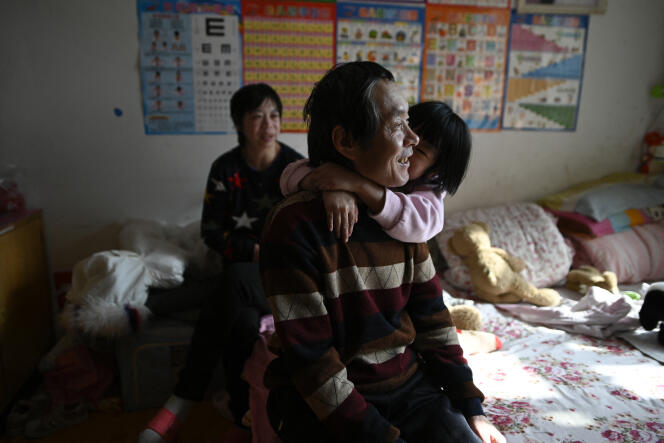

In China, the death of a 13-year-old rekindles the debate on the plight of migrant workers' children

The death of a 13-year-old boy, likely killed by fellow students who were bullying him, reignites the debate in China regarding the situation of children left in rural areas while their parents work in factories or cities. These children are often portrayed as the casualties of years of rapid economic growth.
Wang Ziyao, one of these so-called "left-behind children," just like the three youths under 14 suspected of causing his death, was raised by his grandparents in a village in Hebei, 440 kilometers south of Beijing.
On March 10, a Sunday, around 1 p.m., the teenager informed his family that he was going to play with his friends. With no news by late afternoon, his grandfather tried to reach him, but his phone went unanswered, although he remembered seeing him charge it before leaving. The family began searching for him. They learned from the school that he was often with these three boys, but when questioned, they initially denied knowing where Wang Ziyao was.
It was only after analyzing the village's surveillance cameras that the involvement of the three youngsters was established, while the victim's WeChat account (the Chinese social network), revealed that he had paid them the equivalent of €25. The boy's body was finally found the following day in a shallow hole dug in an abandoned greenhouse in the middle of wheat fields, his face damaged, probably by the blows of a shovel. Zang Fanqing, Wang Ziyao's family lawyer, explained the boy had been bullied for a long time.
The body was taken away by the local police until the family complained for several days about the lack of an autopsy. It was finally conducted on the night of March 17, a few hours after the broadcast of a live video watched by thousands of people – but interrupted in real-time – in which the family's lawyer discussed the police's refusal to let them see the body.
The case, which caused a stir on social media and in the Chinese press, raises two distinct issues: The first concerns the criminal responsibility of minors. Children over 12 and under 14 can only be criminally charged with the approval of the Central Prosecutor's Office, and cannot be sentenced to death. On social media, many people, probably moved by the case, are calling for exemplary sentences for the young suspects.
The other question concerns the fate of children whom parents are unable to take with them in their quest for a better future for the family. The reforms initiated by former Chinese leader Deng Xiaoping in the early 1980s led hundreds of millions of Chinese to industrial zones and urban jobs, usually returning to their home villages for only one week a year, during the Lunar New Year holidays. However, factory life is such that there are no schools or family apartments around the production sites.
You have 53.87% of this article left to read. The rest is for subscribers only.
